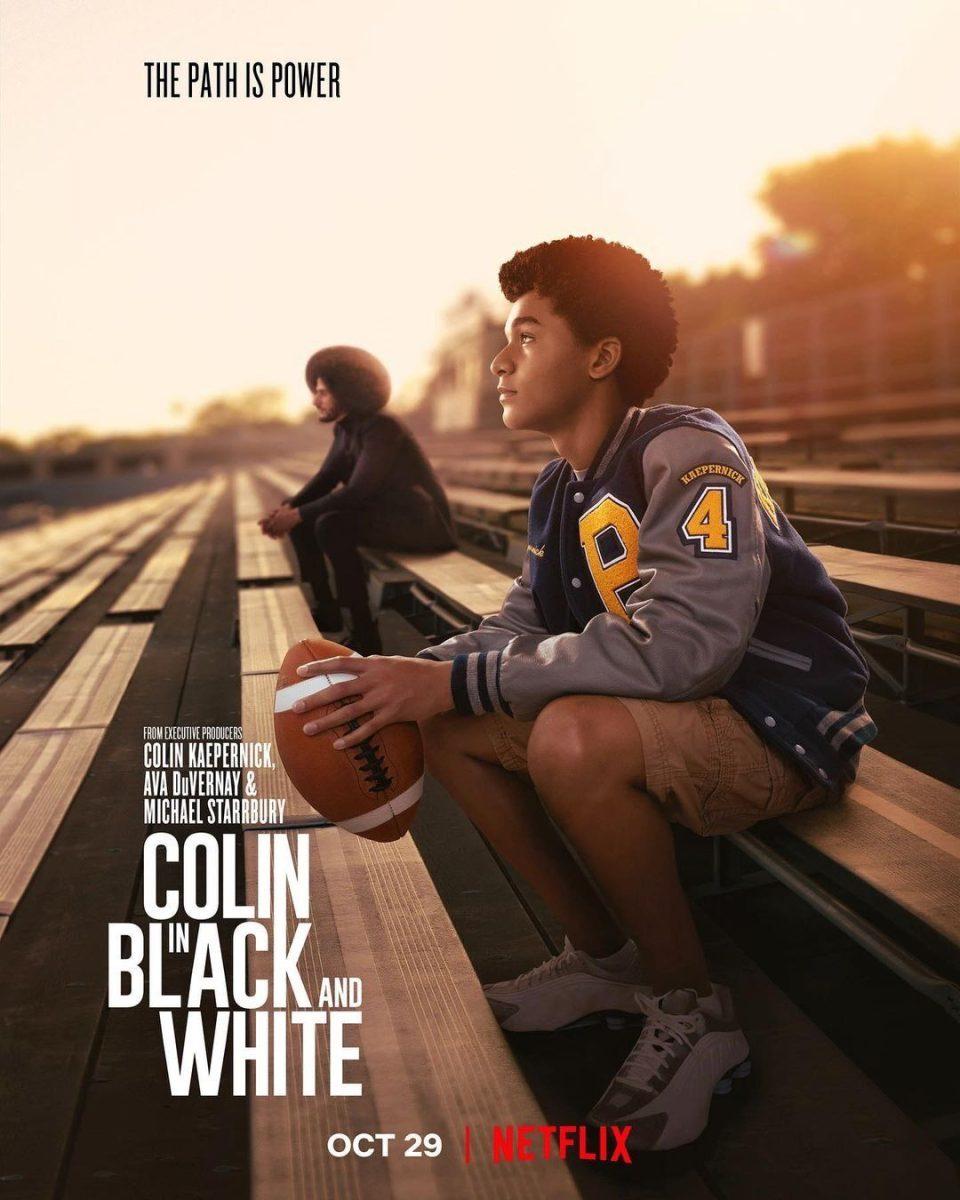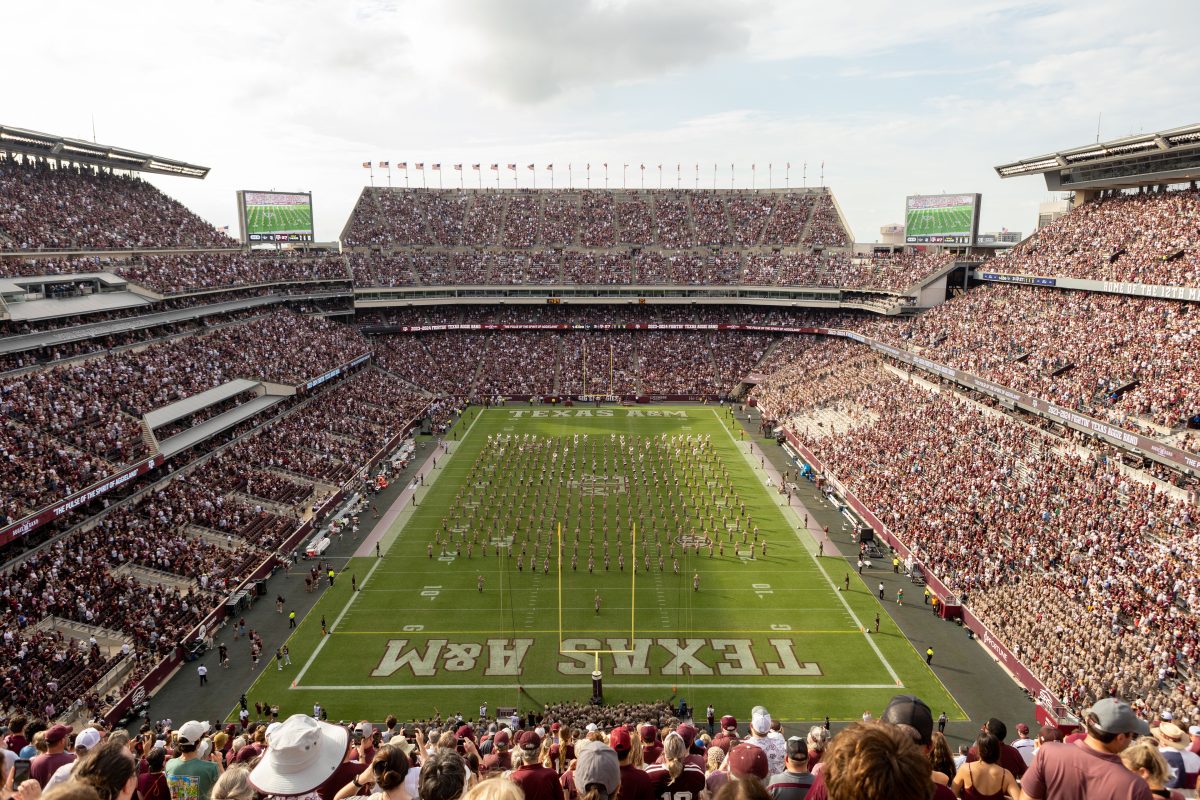From a kneel to a reel, NFL free agent quarterback Colin Kaepernick has never failed to make political waves in the world of sports.
In his Netflix limited series “Colin in Black & White,” which debuted on the streaming service on Oct. 29 of this year, Kaepernick made a bold claim connecting two seemingly unrelated topics: the NFL Combine and slavery in the United States.
Though the series is split into six parts, almost all media attention focused on the first episode, which contains the reference to slavery. In an attempt to understand the complexities of the topic, health and kinesiology professor Umer Hussain, Ph.D., who spent years studying and dissecting social and ethical issues within the sports industry, helped The Battalion break down the documentary’s introductory segment.
Q: Before we dive into any controversial statements made in the documentary, what did you think of the series as a whole?
A: It’s a very good story which has [Kaepernick’s] views while also telling, theoretically, how others in sports have been affected by the homogeneous environment of the industry, especially [by] going against Black people. It’s a story about his childhood, including how his parents influenced him and how he grew up in a society which was very much homogeneous. Death affected his identity, and that created a lot of holes in his life; he became very much sensitized to things like that, which led to what he did on the football field.
Q: As you know, the show garnered as much attention as it did because Kaepernick compared the NFL Combine to the enslavement of Black Americans in the past. Is this statement as cut-and-dry as most try to make it, or is there a deeper entanglement of different issues at work?
A: That was a really, really powerful message because there are two different views of the situation. One view is that people earn money [as a professional athlete]; people can live a good life that way, and Colin might have earned money through it as well. But if we see the overall industry, it is true that almost all the owners are from the white racial background, and most of the athletes are from the racialized entities — mostly Black communities. Historically, most NFL quarterbacks were from a white background, and so [Kaepernick] had to fight for that narrative that a Black athlete could be a quarterback as well.
Q: What purpose did it serve for Kaepernick to make such a controversial claim?
A: It is important to know the historical background of his own identity before talking about his personal narrative. You have to go back to what he faced and how he faced structural racism. That’s what led him to make that narrative.
Q: Do you think there is any particular reason for Kaepernick to make this comparison in the show’s very first episode, rather than adding it into a later episode once the tone of the series had been established?
A: As a director, you want your movie to sell, right? That was one narrative — they were trying to put it in front. If it was in the second or third or fourth episode, it might have a different impact as compared to starting from that thing about the slavery.
Q: Let’s say this documentary had been written about and produced by a quarterback other than Kaepernick — one without a controversial past that involved a player kneeling during the National Anthem. Would the media’s reaction to the series have been different?
A: Kaepernick became a real big story after [kneeling in 2016] because if the president of the United States makes a statement about an athlete, it becomes important — it becomes a headline. Colin’s point of view was seen as controversial [in 2016], so that’s what he tried to narrate in the documentary as well. That helped him push the show to a level of publicity that others might not have reached.
Q: Regardless of whether a viewer agrees or disagrees with what the athlete says, what makes Kaepernick’s message so pronounced in today’s political climate?
A: It’s important to know what structural racism is based on, and our focus should be more about how we can break down those barriers of structural racism within the society. We should be looking for more accountability in the system as well as what other opportunities could be given to others. The lived experience of a person of color is different for each person … he or she goes through different events in their life, and that makes them act a certain way.
Q: Do you see a way in which this documentary series connects back to campus culture here at Texas A&M?
A: This one person has his lived experience, but we have to think about how many other people might have lived the same experience. It’s all about finding that new perspective. At Texas A&M, football has a major stake in our culture. People take it really seriously; it’s like the team’s players become a part of the fans’ families. So, we need to understand that some of those with different racial identities on the team are being affected by this same issue as Colin, even if they aren’t kneeling.





















